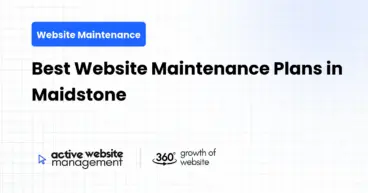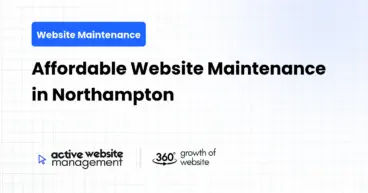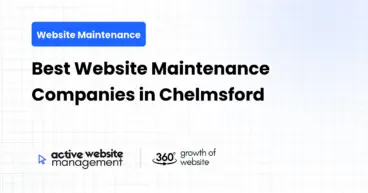January 23, 2025
14 min read
Maintaining a website for senior care services isn’t just about keeping it online; it’s about ensuring it’s a trusted resource for families seeking help for their loved ones. It’s a digital beacon, guiding people towards compassionate care, and its upkeep is paramount to success. Neglecting your website is akin to leaving a physical care facility in disrepair – it sends the wrong message. This article will delve into seven crucial website maintenance tips that will keep your site vibrant, secure, and effective.
Why Security Matters for Elderly Care Websites
The senior care sector handles incredibly sensitive information. Think about personal details, medical histories, and financial data. A security breach can not only damage your reputation but also expose vulnerable individuals to potential harm. Furthermore, search engines like Google penalize websites with known vulnerabilities, impacting your visibility in search results. Therefore, regularly updating your website’s security is not optional; it’s a fundamental responsibility.
How to Implement Security Updates
- Software Updates: Every website relies on software, such as the Content Management System (CMS) – like WordPress, Drupal or Joomla– themes, and plugins. These are constantly updated to patch vulnerabilities. Schedule a regular process, such as monthly, to check and apply these updates.
- SSL Certificate: An SSL certificate is critical for encrypting data transferred between a user’s browser and your server. Ensure your website has an active SSL certificate (you’ll see a padlock icon in the browser address bar), signifying to users that their information is secure.
- Strong Passwords: It may seem basic, but weak passwords are a leading cause of security breaches. Use a password manager to generate and store complex passwords for all administrator accounts.
- Firewall Protection: A web application firewall (WAF) acts as a shield between your website and the outside world, blocking malicious traffic. Ensure your hosting provider offers a firewall service or install a security plugin for your chosen CMS.
- Regular Backups: In the event of a successful attack or data loss, backups are your lifeline. Schedule automatic website backups on a daily or weekly basis, ensuring you can swiftly restore your site to a working version.
- Security Plugins: If you are using a CMS, there are many security plugins available which offer an extra layer of protection by monitoring and detecting potential threats. Tools that scan files for vulnerabilities, block malicious IPs, and enforce login security.
Don’t Just Maintain Your Website—
Grow It using Active Website Management! Don't Wait for Growth—Accelerate It with Active Website Management
The Benefits of Robust Security
- Enhanced User Trust: Reassures families that their information is safe and secure, creating confidence in your services.
- Improved Search Ranking: Search engines favor secure websites, so consistent updates boost your visibility.
- Protection Against Data Breaches: Minimizes the risk of financial loss, reputational damage, and legal complications.
2. Consistent Content Updates: Keeping Your Information Relevant and Engaging
Why Fresh Content is Crucial for Senior Care Sites
An active, informative website keeps your audience engaged and positions your services as current and trustworthy. Stale, out-of-date content sends the message that your care services might be stagnant too. For families exploring senior care options, up-to-date information is vital in making an informed decision.
How to Approach Content Updates
- Blog Posts: Regularly publish blog posts that address common concerns, offer advice, and highlight new services or events. Consider topics like “Tips for Choosing Assisted Living,” “Understanding Memory Care,” or “Navigating the Costs of Senior Care”.
- News and Events: Announce upcoming events, such as open houses, health seminars, or community outreach programs. Keeping families updated on the latest happenings demonstrates your active engagement within the community.
- Service Updates: If there are new services, changes to policies, or modifications to hours of operation, ensure your website is updated immediately.
- Staff Introductions: Feature your caregiving team on your website, including their qualifications, experience, and personal background. This helps create a connection with your site visitors and builds trust in your staff’s capabilities.
- Testimonials and Success Stories: Share testimonials from satisfied families and clients. These real-world experiences resonate strongly with potential clients and provide social proof of your commitment to quality care.
- SEO Considerations: When updating content, optimize keywords (such as “elderly care website upkeep,” “senior service site maintenance,” “assisted living site care”) within your text naturally, not artificially. This helps search engines understand what your website is about, thus boosting your ranking.
- Content Calendar: Create a content calendar that outlines topics, posting schedules, and resources needed, this allows you to make sure content is produced regularly and according to plan.
Benefits of Regular Content Updates
- Improved SEO Performance: Search engines reward websites that are updated frequently with fresh and relevant information.
- Higher User Engagement: Keeps potential clients and existing families informed, interested, and connected to your services.
- Enhanced Brand Authority: Positions your senior care service as a thought leader within the industry.
- Increased Lead Generation: Captures more attention, thus increasing inquiries about your services.
3. Mobile-Friendliness: Ensuring Accessibility for All
Why Mobile Responsiveness is Non-Negotiable
In today’s world, most website traffic comes from mobile devices, including smartphones and tablets. If your website isn’t mobile-friendly, it will look clunky on these devices, providing a frustrating user experience. This is particularly important for senior care websites because family members, often adult children who might be using their mobile phones to research, are the ones actively searching for services.
How to Make Your Website Mobile-Friendly
- Responsive Design: The most effective method is to use a responsive design, which allows your website layout to adapt automatically to different screen sizes. This means your content will display optimally on desktops, tablets, and smartphones.
- Mobile-First Approach: Consider the mobile experience first when designing your site. This often involves simplifying navigation, using larger text sizes, and reducing the amount of content visible at one time.
- Large Buttons and Tap Targets: Make sure your buttons and links are large enough for easy tapping on a touchscreen.
- Fast Loading Speed: Optimize images and website code to ensure that your pages load quickly on mobile networks, which may have slower connection speeds than desktop internet.
- Google’s Mobile-Friendly Test: Use Google’s free mobile-friendly test to evaluate your website’s mobile responsiveness. This tool also highlights areas that need improvement.
- Simplified Navigation: Mobile users need an intuitive navigation structure, like a simple hamburger menu, that will be easy to use on a smaller screen.
The Advantages of a Mobile-Friendly Website
- Enhanced User Experience: Provides a smooth and enjoyable browsing experience for all users regardless of their device.
- Improved SEO Rankings: Google uses a mobile-first indexing approach, meaning that the mobile version of your website is the primary version considered for ranking.
- Wider Reach: Makes your services accessible to a larger audience who may be browsing from their phones.
- Increased Conversion Rates: Mobile users are more likely to contact you if your site is easy to navigate and view on their devices.
Don't Wait for Growth—Accelerate It with
Active Website Management Don't Wait for Growth—Accelerate It with Active Website Management
4. Regular Website Backups: Preparing for the Unexpected
Why Website Backups are an Essential Precaution
Website issues can occur at any time. From accidental deletions to security breaches to server problems, you need to prepare for potential data loss. Backups will act as your insurance policy, allowing you to quickly recover your website and minimize downtime.
How to Implement Backup Strategies
- Automated Backups: The easiest method is to use an automated system, provided by a hosting company or a plugin. Configure it to automatically create backups regularly, such as daily or weekly, storing them in a safe, separate location from your live website.
- Multiple Backup Locations: Don’t rely on just one location. Store backups in several locations, such as a separate server, a cloud storage service, or an external hard drive, to have a fallback plan in case one location fails.
- Test Your Backups: It is crucial to test your backups regularly to ensure that they can be restored quickly and correctly. There is nothing worse than discovering that your backup is corrupt only when it’s needed.
- Choose the Right Type of Backup: There are two basic types of website backups: Database backups and full website backups. Database backups contain the content you’ve created, such as blog posts, pages, and user information, while full backups include the entire website with all files, images, videos, and code. For the best practice, use full website backups so that no vital information is lost.
- Maintain a Backup Schedule: Based on how often your website’s content is changed, maintain an appropriate schedule for the creation of website backups.
The Benefits of Consistent Backups
- Quick Recovery from Issues: Enables you to restore your website to its previous state if anything unexpected happens, minimizing website downtime.
- Data Protection: Safeguards your content, user information, and other important website data from data loss.
- Reduced Stress: Provides peace of mind knowing that you can quickly recover your site.
- Enhanced Business Continuity: Prevents interruptions in services and maintains business operations.
Why Website Speed Matters
Website speed is a crucial factor in user experience. If your site loads slowly, visitors are likely to become frustrated and leave. Slow loading speeds can also negatively impact your search engine ranking and increase your bounce rate. This means that a potential client might quickly leave your website without further exploring your services.
How to Improve Website Speed
- Optimize Images: Large image files slow down a website considerably. Compress images using tools like TinyPNG or ImageOptim before uploading them. Use the correct file formats such as JPG or PNG for images, or WebP for more modern web browsers.
- Enable Caching: Implement website caching, storing frequently accessed data in a temporary location. This will reduce the need to retrieve the same data every time a user visits your website.
- Minify CSS, HTML, and JavaScript: Minify your website code by removing unnecessary whitespace, comments, and characters. This reduces the size of your code and improves page loading speed.
- Use a Content Delivery Network (CDN): A CDN stores your website files on multiple servers across the world. When users access your site, the content is delivered from the closest server, improving loading speed, especially for users far away from your main server location.
- Choose the Right Hosting Provider: Your website’s performance is largely dependent on the quality of your hosting service. Choose a hosting provider that provides adequate resources, such as server space, bandwidth, and processing power.
- Avoid Excessive Plugins and Scripts: Each plugin adds to your site’s code, which can slow down the performance. Remove any plugins that are not crucial and only keep the necessary ones.
The Advantages of Website Optimization
- Improved User Experience: Provides visitors with a fast and smooth browsing experience, encouraging them to stay on your site for longer.
- Enhanced Search Engine Rankings: Google considers site speed as a ranking factor. Faster websites rank higher than slower websites.
- Reduced Bounce Rate: Quick loading speeds reduce the likelihood of visitors leaving before your content is loaded.
- Increased Conversions: A faster website can help improve the number of inquiries and conversions.
6. Functional Testing and Broken Link Management: Maintaining a Smooth User Journey
Why Consistent Testing is Important
Users expect your website to function flawlessly. Broken links, forms that don’t work, and navigation issues can frustrate visitors, creating a negative impression about your services. Regular testing is essential to ensure a seamless and user-friendly experience.
How to Test Your Website
- Manual Testing: Regularly check all website links, forms, navigation menus, and multimedia files to make sure they work as expected.
- Automated Tools: There are many tools, such as Google Search Console or Broken Link Checker, that can automatically scan your website for broken links. These tools make it easier to find and fix any issues that can impact your website’s functionality.
- Cross-Browser Testing: Ensure that your website is working correctly on different web browsers (such as Chrome, Firefox, Safari, and Edge) and operating systems.
- Form Testing: Always submit test data through your forms to ensure that submissions are being processed correctly and that you receive the data as expected.
- Mobile Testing: Make sure that all the features of your website work well on smartphones and tablets. Test links, forms, menus, and any other interactive elements.
- Error Monitoring: Implement error monitoring tools that will alert you if there are website issues.
The Advantages of a Functional Website
- Improved User Experience: Provides an easy and seamless browsing experience for visitors.
- Increased Trust and Credibility: A well-functioning website helps increase the perception that your service is professional and reliable.
- Improved Search Engine Rankings: Search engines penalize websites that provide a poor user experience such as having broken links, which will negatively impact your site’s ranking.
- Increased Conversions: An intuitive and easy-to-navigate website is more likely to generate leads and convert inquiries.
7. Active Website Management: A Strategic Approach
Maintaining your website isn’t a one-off project; it’s an ongoing process that needs to be actively managed. This is where the services offered by companies like Active Website Management become invaluable.
What is Active Website Management?
Active website management involves taking a proactive, ongoing approach to all the aspects discussed earlier – security updates, content creation, mobile-friendliness, backups, performance optimization, and functional testing. It’s about continuous monitoring, analysis, and optimization to ensure your website is always performing at its best.
The Benefits of Active Website Management
- Expert Guidance: When you partner with a professional website management company, you gain access to a team of experts who are knowledgeable about the latest website best practices, trends, and technology.
- Time Savings: Website management tasks can be time-consuming. By outsourcing these tasks, you can free up your team to focus on core business activities like providing care to senior citizens.
- Proactive Maintenance: Active website management involves continuously monitoring your website for issues, resolving them before they become problems, and keeping the website up to date with all the latest updates.
- Improved Results: Working with an active website management company will ensure that your website is always operating at peak performance, resulting in enhanced website performance.
- Cost Efficiency: By preventing downtime, data loss, and security breaches, active website management can help you save money in the long term.
- Increased Conversion Rates: With regular updates and continuous improvements, you will have more user interaction and a better chance of turning site visitors into clients.
Why Outsource to Active Website Management?
Active Website Management offers a range of services specifically designed to support businesses like yours, providing comprehensive website care, including:
- 24/7 Monitoring: They constantly monitor your website for potential issues to take action immediately if any problems arise.
- Security Updates and Maintenance: They ensure your website is always up-to-date with the latest security patches and upgrades to keep it secure from cyber threats.
- Content Updates: They help you keep your website up-to-date with new blog posts, news, and information on your services.
- Performance Optimization: They work constantly to improve your website loading speed and optimize its performance.
- Technical Support: They will resolve any technical issues that arise on your website.
Conclusion: Nurturing Your Digital Presence
Your website is an essential tool for connecting with the families that need your elderly care services. Like a well-tended garden, it needs consistent care and attention to thrive. Implementing these seven critical website maintenance tips is not just about keeping your site online; it’s about building trust, showcasing your expertise, and ensuring that you’re connecting with those who need you. Whether you manage your website in-house or partner with a company like Active Website Management, make website maintenance a priority. It’s an investment that directly impacts your ability to reach, engage, and ultimately, serve your community with compassionate care. By prioritizing these aspects of your website, you will not only improve your digital presence but also demonstrate your commitment to excellence in senior care.






